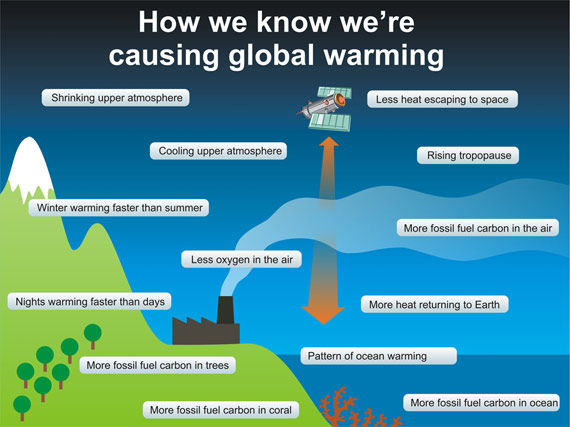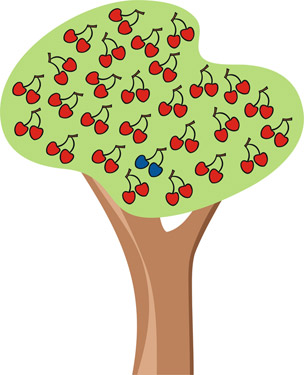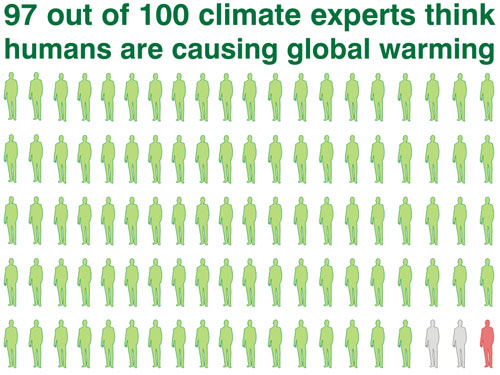Climate Denial Video #4: The favourite weapon of deniers, cherry picking
Posted on 8 August 2011 by John Cook
In this fourth video collaboration with Treehugger, we look at the favourite weapon of climate deniers - cherry picking. I've been quite enjoying how Treehugger have been creatively adding animation to my droning monologue and this video was no surprise as they cleverly combined our human fingerprints graphic with our cherry tree graphic. Cool stuff!
And as I never pass up the opportunity to repost my beloved infographics, here they are again:
And lastly, they also used our scientific consensus infographic - but can the sharp eyed reader notice the difference between the infographic used in the video and this newly updated version? (bonus marks if you can explain the difference)































 Arguments
Arguments

































[DB] "That does not translate to 82% believe all the predictions about catastrophic temperature rises."
Strawman. What would lead someone to interject "catastrophic" into the discussion out of nowhere, which is what you have done? You are arguing ideology. Rhetoric fail.
If you want to convince people, use accurate and pertinent data to support your stance. Otherwise, you are viewed as a politcal activist, not a scientific source.
And you continue to evade Sphaerica's question on the other thread.
[DB] And thank you very much for the most excellent Alice in Wonderland impression on this thread. Most illuminating, the way you have ceded all semblence being an "honest broker" and have formally donned the mantle of denial.
[DB] I am more than willing to consider any evidence that can be a silver bullet that overcomes AGW. Indeed, that's one of the main reasons I continue in my involvement here.
Could you please enlighten this one as to which evidence you have presented?
Please note, said evidence should be able to be reproducible, survive peer-review and be internally & externally consistent with the physics of our world.
Look forward to it.